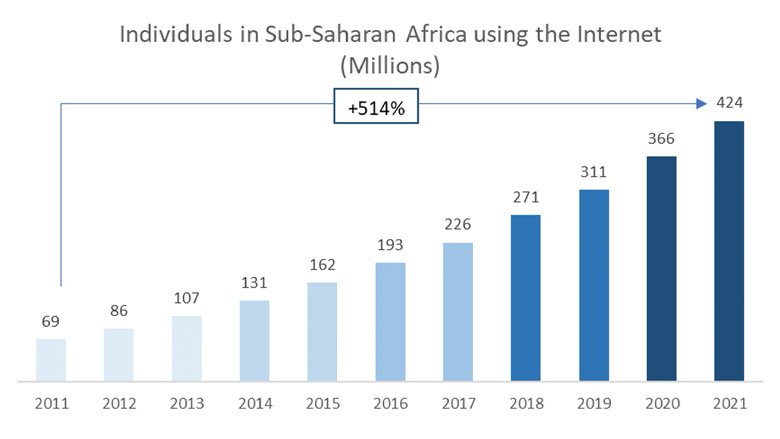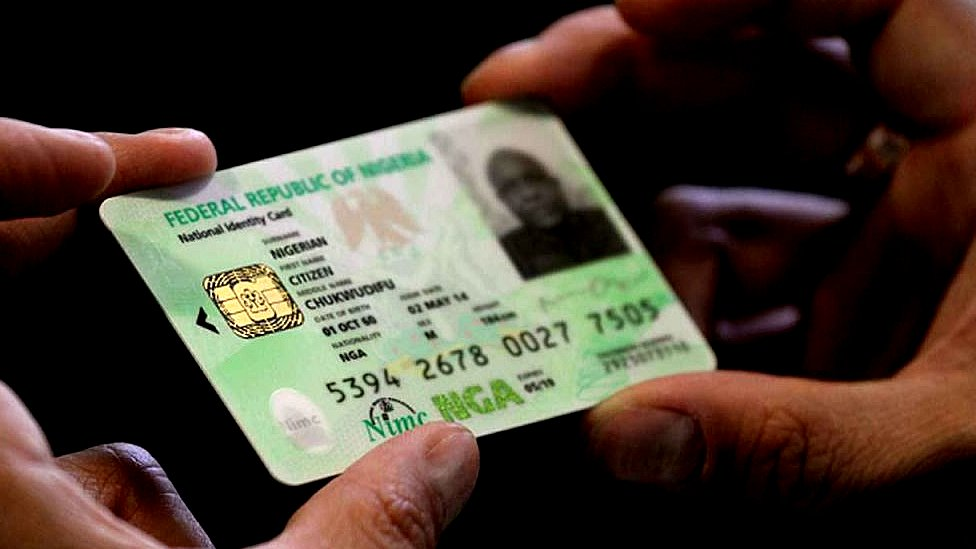In Summary
- The Africa Digital Transformation Market is projected to reach $30.24 billion by the end of 2025 and is expected to grow to $63.31 billion by 2030, with a compound annual growth rate (CAGR) of 15.90%.
- The digital economy’s contribution to Africa’s GDP is expected to reach 5.2% by the end of 2025, up from 1.1% in 2012, according to Digital Realty.
- Average technological capabilities in African Union Member States have nearly doubled, increasing from 25% to 41%, according to AUDA-NEPAD. Public cloud deployment held a 63.0% share of the African digital transformation market in 2024.
Deep Dive!!
In recent years, Africa has experienced a profound shift in how governments deliver public services, driven by the urgency to modernize, streamline operations, and meet the growing expectations of digitally connected citizens. African countries are undergoing a digital transformation due to technological advancements across the continent, as highlighted in our article, “Top 10 Most Technologically Advanced Countries in Africa 2025.”
In 2025, this transformation has become even more visible. From e-identity systems and tax automation to AI-powered health tracking and open civic engagement platforms, African nations are embracing digital tools to enhance governance, improve service delivery, and foster transparency.
Africa’s digital transformation in the public sector is experiencing significant growth, marked by increasing investments in digital infrastructure, a rise in internet users, and a greater adoption of digital payments. According to reports by Digital Reality, Africa’s digital economy contribution to GDP is also projected to increase, with key areas like digital IDs and financial technology showing substantial progress.
In its report, AUDA-NEPAD reveals that what was once a patchwork of pilot programs and isolated innovations is now evolving into integrated national strategies with real impact. Countries like Rwanda, Kenya, South Africa, and Ghana are leading the way in the continent and proving that digital transformation is no longer just a buzzword but a developmental imperative.
Here are the top 10 most digitally transformed public sectors in Africa in 2025, highlighting the bold initiatives, policy innovations, and technological breakthroughs that are redefining the future of governance across the continent.

10. AI Upskilling in Public Service (South Africa)
Under President Ramaphosa, South Africa launched the Microsoft AI Skills Initiative, training over 1 million public servants in AI, data science, and digital governance by 2026. Collaborations with AWS, NEMISA, and Huawei ensure integrated adoption of cloud and IoT infrastructure.
This investment in digital skillsets positions the public sector for a future smart governance model, one that is data-driven, agile, and citizen-centric.
9. Civic Engagement Platforms (Kenya, South Africa, Uganda)
Kenya’s MajiVoice enables water service feedback that surged from 400 to 4,000 monthly complaints, improving resolution rates from 46% to 94%. South African platforms like GovChat and Grassroot allow citizens to engage via SMS and WhatsApp, and Uganda’s U Report mobilizes over 240,000 youth to influence political discourse.
These initiatives mark a seismic shift in citizen-government relations, fostering responsiveness, civic trust, and participatory democracy.
8. HR & Payroll Digitalization (Uganda, South Africa)
Uganda has digitalized civil service payments and pension administration while South Africa’s Integrated Financial Management System manages payroll across departments efficiently and transparently. These efforts reduce payroll fraud, streamline administration, and ensure timely remuneration for public workers.
These systems not only ensure compliance and efficiency but also support workforce morale and enable the redeployment of human resources to strategic areas, fueling improved service delivery in key sectors.
7. Government Data Management & Open Data (Ghana, Tunisia, Morocco)
Ghana’s Open Data Initiative offers citizens, researchers, and entrepreneurs access to reusable datasets, driving transparency and innovation. Across Tunisia and Morocco, national open data portals support developer ecosystems, improve government transparency, and enable data-driven service delivery.
Open data accelerates innovation by enabling civic tech solutions, business opportunities, and advanced public sector planning. It also upholds accountability by allowing public scrutiny of government operations.
6. Telecom Regulation & Broadband Infrastructure (Kenya, South Sudan)
Kenya is now a hub of telecom reform and competition, bolstered by ambitious connectivity plans like the Google Umoja undersea cable, linking the continent from East Africa to Australia. In South Sudan, the National Communication Authority has revamped telecom licensing and partnered with Starlink, helping to bridge the rural-urban digital divide.
Modern telecom regulations and infrastructure are laying a foundation for digital inclusion, enabling e-governance, e-commerce, and social mobilization across previously unconnected or underserved communities.
5. Public Health Services & Pandemic Response (South Africa, Nigeria)
South Africa has integrated digital tools like AI and analytics in public health systems to predict outbreaks and manage resources effectively, which proved critical during mpox response efforts. Meanwhile, UNESCO-supported training has equipped Nigerian civil servants with digital governance and AI skills under its National Digital Economy Strategy.
The fusion of AI, digital tracking, and remote consultations has increased efficiency, improved patient outcomes, and equipped public health systems to better handle emerging crises, marking a clear leap forward for digitally enabled healthcare.
4. Tax & Revenue Management (South Africa)
The South African Revenue Service (SARS) has long championed digital reform, implementing e-filing since 2006. This has led to substantial efficiency improvements and higher compliance, and it continues to evolve as a model for other African countries. COVID-era grants automation for 6 million people leveraged digital distribution tools and mobile connectivity, demonstrating the broad benefits of e-governance.
By reducing fraud and eliminating paper-based processes, SARS has significantly increased revenue and public trust. It also demonstrates that digital transition can enhance governance without massive job losses, focusing instead on retraining staff for higher-value roles.
3. Digital Land & Property Management (Rwanda, Kenya)
In Rwanda, Irembo also supports digital land title applications, an uncommon but critical function in Africa’s public services. Kenya’s ambitious National Digital Master Plan includes secure, cloud-based land registries to tackle disputes and corruption in property records.
Digitizing land records ensures transparency and clarity in property ownership, which is vital for attracting investment and reducing conflicts. These efforts also support smallholder farmers and urban developers by making land information more reliable and publicly accessible.
2. E-Government Service Portals (Kenya, Botswana)
Kenya’s eCitizen and Huduma Centres represent a seamless digital-first approach to public service access, offering over 5,000 services online, from driver’s licenses to land registration. Botswana mirrors this success, combining broadband expansion with public-private collaboration to deliver transparent and inclusive service delivery through accessible online platforms.
These platforms not only save time and money for citizens but also enhance transparency and trust in government operations. By consolidating services into one place and enabling digital payments, they have eliminated many bottlenecks and significantly improved citizen satisfaction.
1. Digital Identity & Civil Registration (Rwanda, Nigeria, Ghana, South Africa)
Countries like Rwanda, Nigeria, and Ghana continue to lead with robust national digital identity systems. Rwanda’s Irembo platform integrates functions ranging from birth certificates to land title applications, underpinned by strong cybersecurity and interoperability standards. In Nigeria, the National Identity Management Commission has issued over 100 million unique IDs, linking citizens to banking, voting, and health services, a foundational platform for digital governance.
These ID systems boost efficiency, reduce fraud, and support inclusive access to social services. South Africa’s Social Security Agency and Revenue Service have leveraged digital ID verification to process grants and e–file taxes for millions, significantly reducing administrative overhead and enabling equitable distribution of public resources.
https://www.africanexponent.com/top-10-most-digitally-transformed-public-sectors-in-africa-2025/


